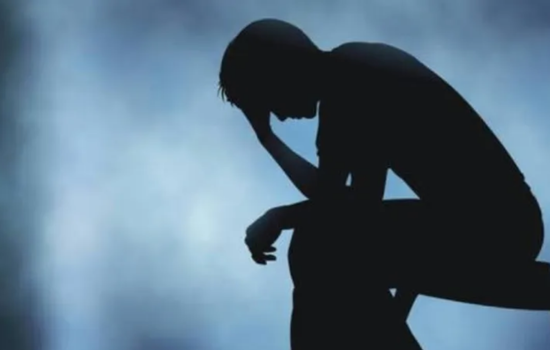Advertisements
Depression is a serious problem that can affect people of all ages, including children and adolescents.
It's often difficult to notice the signs of depression in young people because they may not know how to express what they're feeling.
Advertisements
It's important for parents and caregivers to be alert to certain behaviors and changes to help identify depression and seek help. Here are seven signs that your child may be depressed.
1. Change in appetite and weight
One of the first signs of depression can be a significant change in appetite and weight. Your child may start eating much more or much less than usual.
Advertisements
See also:
- Ruler and Tape Measure Application – Measurements
- 5 Unnoticed Signs You're Pushing Your Best Friend Away
- 7 Common Characteristics of a Manipulative Person
- Unleash the DJ within you: Best DJ App
- Tea That Promises to End Anxiety with Only 2 Ingredients
This can lead to noticeable weight gain or loss. Pay attention if he or she refuses to eat or overeats.
2. Lack of interest in activities
Children and teens typically enjoy playing, socializing, and participating in activities. If your child suddenly loses interest in hobbies, sports, or hanging out with friends, this could be a sign of depression. They may seem unmotivated or lack the energy to do things they used to enjoy.
3. Social isolation
If your child begins to isolate themselves, avoiding friends and family, it may be a sign that something is wrong. They may spend a lot of time alone in their room and avoid social interactions. Isolation can be a way of coping with feelings of sadness or hopelessness.
4. Sleep disturbances
Sleep problems are common in depression. Your child may have difficulty sleeping, wake up frequently during the night, or sleep much more than usual.
Irregular sleep can affect your mood and behavior during the day, making you appear tired or irritable.
5. Poor academic performance
Depression can affect concentration and academic performance. If your child is having difficulty following classes, forgetting to do homework, or getting lower grades, this could be a sign of depression. Teachers and school counselors may also notice these changes.
6. Irritable or aggressive behavior
Depressed children and adolescents may display irritability or aggressive behavior. They may get angry easily, have angry outbursts, or get into fights.
This behavior may be a way of expressing the frustration and sadness they are feeling.
7. Comments about feelings of hopelessness or death
This is one of the most serious and worrying signs. If your child talks about feeling hopeless, worthless, or makes comments about death or suicide, it's crucial to take it seriously.
These feelings may indicate deep depression and the immediate need for professional help.
The importance of professional help
If you notice one or more of these signs in your child, it is essential to seek professional help as soon as possible.
Depression is a treatable medical condition, and a mental health professional, such as a psychologist or psychiatrist, can provide the necessary support to help your child overcome this challenge. Let's see how to proceed:
Talk to your child
Open a line of communication with your child. Ask how they're feeling and listen without judgment. Sometimes, just knowing someone is listening can make a big difference.
Seek professional help
Depression is a medical condition that requires specialized treatment. Find a psychologist or psychiatrist who can evaluate your child and recommend appropriate treatment.
This may include therapy, medication, or both. Early intervention by a professional can prevent depression from worsening and help your child recover more quickly.
Maintain a supportive environment
Create an environment at home where your child feels safe and supported. Show empathy and patience, and reassure them that they are not alone and that you are there to help. Emotional support is crucial in the recovery process.
Encourage healthy activities
Encourage your child to participate in physical and social activities. Exercise and time with friends can help improve mood and reduce symptoms of depression. Staying active is an important part of treating depression.
Monitors the use of technology
Although technology can be a useful distraction, it is important to monitor the use of electronic devices and social media.
Excessive screen time can worsen symptoms of depression. Limit screen time and encourage offline activities.
Stay tuned for changes
Continue to monitor your child's behavior and emotional state. If you notice any deterioration or signs of immediate danger, don't hesitate to seek emergency help. Maintain an open dialogue with your child and the healthcare professionals involved in their treatment.
Use support applications
There are apps that can help monitor your child's emotional well-being. Apps like Sanvello They offer tools for managing mood, breathing exercises, and relaxation techniques that can be helpful for young people with depression.

Conclusion
Recognizing the signs of depression in your child is the first step in helping them feel better. Pay attention to changes in appetite, sleep, behavior, and school performance.
Depression is a serious condition, but with proper support and treatment, your child can overcome these challenges.
If you suspect your child is experiencing depression, don't hesitate to seek professional help. Your love and support are essential to their recovery.
Download the app here
Sanvello – Android/iOS




